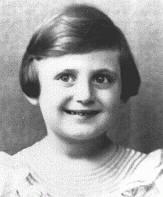<< Previous | Displaying results 326-350 of 6707 for "" | Next >>
-
Marcus Fass
ID CardMarcus, known to his family as Moniek, was one of three children born to a Jewish family in the Polish town of Ulanow. His father worked as a tailor. Ulanow's Jewish community had many of its own organizations and maintained a large library. From the age of 3, Moniek attended a religious school. He started public school when he was 7. 1933-39: In 1935 Moniek's father left for America to find a job so that his family could later join him. He sent money to them while they waited for their emigration papers.…
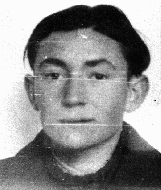
-
Vladan Popovic
ID CardVladan was the oldest of five children born to well-to-do Serbian Orthodox parents in the village of Gnjilane in the Serbian part of Yugoslavia. Vladan went to Montpelier, France, where he earned a law degree from the university. When Vladan returned to Yugoslavia, he worked as an attorney in Belgrade. He married and had one daughter. 1933-39: Vladan's wife died in 1933, and his 4-year-old daughter went to live with her maternal great-aunt. Meanwhile, Vladan had expanded his law practice and was…
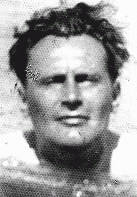
-
Lonia Goldman Fishman
ID CardLonia had three sisters and one brother. Her parents owned a cotton factory in the town of Wegrow. The Goldmans were a religious family, strictly observing the Sabbath, the Jewish holidays and the dietary laws. 1933-39: After studying all day at public school, Lonia attended a religious school for girls called Beis Yakov where she studied Hebrew, the Bible and Jewish history. Later, when she was in high school, a private tutor came to the house to teach her Hebrew. Lonia's favorite hobby was knitting.…
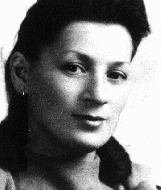
-
Lisa Dawidowicz
ID CardLisa was born to a Jewish family in the small city of Ostrog in southeastern Poland. Her parents operated a grocery out of their residence; the front half of the house was a store and the rear half was their home. Ostrog was an important center of Jewish religious learning in Poland, and by 1933 Jews made up almost two-thirds of the city's total population. 1933-39: Lisa's family was religious and they regularly attended services. Lisa studied at a Polish school until the Soviets arrived in September…
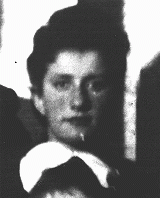
-
Erzsebeth Buchsbaum
ID CardErzsebeth was raised in Budapest, where her Polish-born Jewish parents had lived since before World War I. Her father, a brush salesman, fought for the Austro-Hungarian forces in that war. The Buchsbaums' apartment was in the same building as a movie house. There was a small alcove in the apartment, and Erzsebeth's brother, Herman, made a hole in the wall so that they could watch the films. 1933-39: Every summer Erzsebeth, Herman, and their mother took a special trip to Stebnik, Poland, to visit Grandma.…
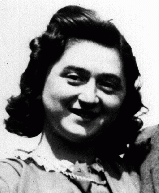
-
Chaja Kozlowski
ID CardChaja was the eldest of four children born to a middle-class Jewish family in the northeastern Polish town of Iwie. Her father earned his living as a blacksmith. Chaja first went to a private Jewish school that taught both religious and secular subjects; in the fourth grade she transferred to a public school, and also attended Hebrew school in the afternoon. 1933-39: Chaja belonged to one of the Zionist youth organizations in Iwie. They heard lectures, often on Palestine [Yishuv], and had many sporting…
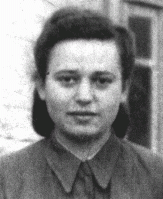
-
Henryk Lubelski
ID CardHenryk was raised in a religious Jewish family. His father was a cantor, and his parents placed an emphasis on education. In 1916 the Lubelskis moved to Rawicz, a town in German-occupied Poland. Henryk was first in his class in secondary school, where he also excelled in wrestling and soccer. After graduating, Henryk became an apprentice in a business. 1933-39: In 1935 Henryk's father secured a good position in the city of Katowice. There, Henryk worked in the sausage business. Since Katowice was close to…
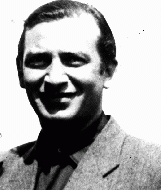
-
Gerda Weissmann
ID CardGerda was born to a Jewish middle-class family in Bielsko, Poland, a town noted for its textile industry. She began her education in Polish public school, but later entered a Catholic girls school. A rabbi was permitted to come into the school and instruct the Jewish students in religious studies. 1933-39: On Friday, September 1, 1939, German fighter planes appeared overhead, causing many people to flee the city. Gerda's family remained and lived through the intense shelling that followed on Sunday…
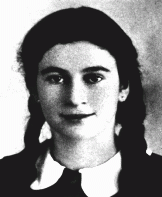
-
Selma Wijnberg
ID CardSelma was the youngest of the Wijnberg's four children, and the only daughter. When she was 7, her family left Groningen to start a business in the town of Zwolle [in the Netherlands]. There her parents ran a small hotel popular with Jewish businessmen traveling in the area. Every Friday there was a cattle market, and many of the cattle dealers came to the Wijnberg's hotel for coffee and business. 1933-39: At home Selma and her family were observant of Jewish tradition because her mother was religious.…
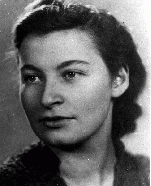
-
Thomas Buergenthal
ID CardThomas Buergenthal was born in May 1934 in the town of Ľubochňa, Czechoslovakia. His parents, Mundek and Gerda, were Jews who had fled the Nazi rise to power in Germany. In Ľubochňa, Mundek ran a hotel that welcomed other refugees and exiles fleeing Nazi persecution. 1933-39: In 1938-1939, Nazi Germany dismantled the country of Czechoslovakia and created the satellite state of Slovakia. As a result, Thomas and his family fled from Slovakia to neighboring Poland. They hoped eventually to immigrate to…
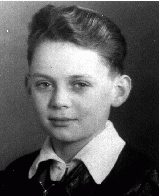
-
Walter Schnell
ID CardWalter was born to a Jewish family in the German town of Strehlen, 25 miles south of Breslau. His family's crystal business was prominent in the town for more than 100 years. Walter's parents sent him to Berlin in the mid-1920s to learn the porcelain trade. He returned to Strehlen in 1926 to help his family run the business. 1933-39: In 1937 Walter's family moved to Breslau. After the German pogroms of 1938 [Kristallnacht, Night of Broken Glass], he was deported to Buchenwald. When he arrived he was…
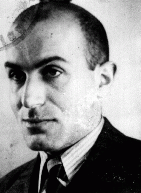
-
Moishe Menyuk
ID CardMoishe was born to a Jewish family in the village of Komarovo, which until 1918 was part of the Russian Empire. At 18, he was drafted into the Russian army and fought in World War I. He was captured by the Germans, and while a POW, learned German. After the war he returned to Komarovo, which by then was part of Poland. He supported his family by farming and managing an estate for a Pole from Warsaw. 1933-39: The few Jews of Komarovo got along well with the Ukrainians. Moishe even played the fiddle at…
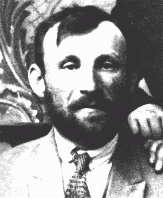
-
Pola Nussbaum
ID CardPola was born to a Jewish family in a small town [in Poland] about three miles from the German border. Her family had lived there for generations. Pola's father exported geese and other goods to Germany; her mother owned a fabric store. They lived with Pola's grandmother in a large, single-level, gray stucco house. Raczki had a small Jewish community with a Hebrew school that Pola attended. 1933-39: In 1937 Pola began secondary school in the town of Suwalki. She excelled in math, and hoped to study…
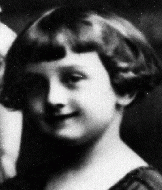
-
Erich Schon
ID CardErich was one of five children born to observant Jewish parents. They lived in Vsetin, a town in Czechoslovakia's Moravia region that straddled the border with Slovakia. Some 70 Jewish families lived in the town of 12,500 persons. There, Erich's family owned a grocery store and operated a sawmill. Erich attended a trade school where he became an expert in lumber and forestry. 1933-39: The Germans kept Erich's family's sawmill operating after they occupied their region in March 1939. Since Erich had a…
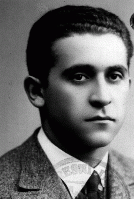
-
Elias (Elya) Grosmann
ID CardElias was born in a small town in the hill country of northeastern Slovakia. His family was Jewish, and he grew up in a religious home in which both Yiddish and Hungarian were spoken. His father was a peddler and his mother ran a small general store. Besides attending public schools, Elias received a formal Jewish education and attended Medzilaborce's rabbinical academy. 1933-39: The townspeople were mostly Jewish and worried about Nazi Germany. The German annexation of Austria in March 1938 alarmed them.…
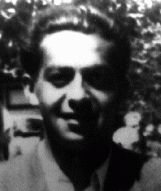
-
Miso Vogel
ID CardMiso came from a religious family in a small village in Slovakia, where his father was a cattle dealer. He was the eldest of five children. When Miso was 6 his family moved to Topol'cany, where the children could attend a Jewish school. Antisemitism was prevalent in Topol'cany. When Miso played soccer, it was always the Catholics versus the Jews. 1933-39: In 1936 Miso had his bar mitzvah and was considered a man. His grandparents traveled 50 miles for it; he was so happy they were all together. In March…
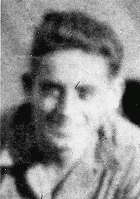
-
Ruth Freund Reiser
ID CardRuth was a child of middle-class Jewish parents living in Czechoslovakia's capital, Prague, where her father worked as a bank clerk. As native Czechs, her parents considered themselves as much Czech as Jewish. In 1933 Ruth was in her second year at a public girls' secondary school. 1933-39: The Germans occupied Prague in March 1939 and imposed many restrictions. Jews were no longer allowed to attend school, so Ruth's education stopped at age 13. Jews had to surrender many of their possessions such as…
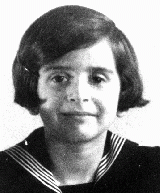
-
David Bergman
ID CardDavid was born to religious Jewish parents in a small town in Ruthenia, Czechoslovakia's easternmost province, which had been ruled by Hungary until 1918. Located in the Carpathian Mountains, the town was so isolated that news from the rest of the country would arrive by a drummer who would read the news in the town's central square. David's father worked as a tailor and his mother was a seamstress. 1933-39: While David's parents worked, he would be at home having a good time. They had a beautiful home…
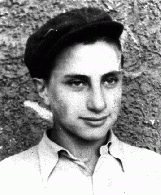
-
Zdenka Popper
ID CardZdenka was one of four children born to a Jewish family in Kolinec, a southwestern Bohemian town near the German border. Her father was a farmer and a lumber and grain merchant. Situated in the foothills of the Bohemian Forest, Kolinec was surrounded by rolling hills. Zdenka attended business school in the nearby town of Klatovy and, in 1927, moved to Prague with her uncle. 1933-39: Zdenka remembers how worried her mother was about the rise of German antisemitism in 1932. After listening to a radio…
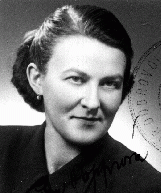
-
Janka Glueck Gruenberger
ID CardJanka was one of seven children raised in a Yiddish-and Hungarian-speaking household by religious Jewish parents in the city of Kosice. In 1918, when she was 20 years old, Kosice changed from Hungarian to Czechoslovak rule. Three years later, Janka married Ludovit Gruenberger, and their three children were born Czech citizens. 1933-39: Janka was an accomplished milliner, and she helped her husband run a tailoring business from their apartment. Like many Jews in Kosice, Janka and Ludovit were upset when…
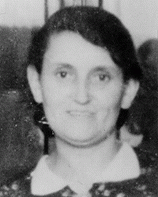
-
Zuzana Gruenberger
ID CardZuzana was the youngest of three children born to Hungarian-speaking Jewish parents in the city of Kosice. She was the baby of the family, and they called her Zuzi. Her father was a tailor whose workshop was in the Gruenbergers' apartment. 1933-39: In November 1938, when Zuzana was 5, Hungarian troops marched into Kosice and made it a part of Hungary. The Hungarians changed the name of the city to Kassa. The Hungarian government was friendly to Nazi Germany and introduced anti-Jewish laws in…
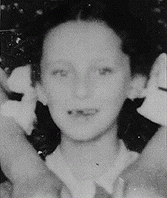
-
Robert Kulka
ID CardRobert was the son of Jewish parents, Leopold and Florentina Kulka, and was raised in the Moravian town of Olomouc. After completing secondary school, he attended a business school until 1909. He began a business in Olomouc and in 1933 he married Elsa Skutezka from the Moravian city of Brno. The couple made their home in Olomouc. 1933-39: The Kulkas' son, Tomas, was born a year and a day after they were married. In 1937 Elsa's father passed away and the Kulkas moved to Brno, where Elsa and her husband…
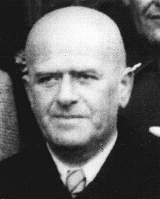
-
Elsa (Eliska) Skutezka Kulkova
ID CardElsa was the eldest of three children born to Jewish parents in Brno, the capital of Moravia, where her father ran a successful shipping company. In 1920 she graduated from a German-language secondary school. She married and moved to Bratislava, but the marriage was unsuccessful and Elsa returned to Brno in 1926, where she opened a millinery business. 1933-39: On May 24, 1933, Elsa married Robert Kulka and the couple settled in Robert's hometown of Olomouc. Their son, Tomas, was born a year and a day…
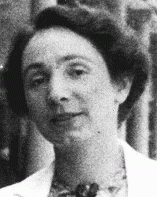
-
Henry Maslowicz
ID CardHenry's Jewish parents lived in a Polish town in which their families had lived for 150 years. The Jewish community enjoyed good relations with their Polish neighbors; the local Polish population refused to cooperate when the government encouraged a boycott of Jewish businesses during a wave of antisemitism that swept Poland in the mid-1930s. 1933-39: In the years before Henry was born, his father owned an iron and coal factory. The Germans occupied Wierzbnik on September 5, 1939. While some Jews fled,…
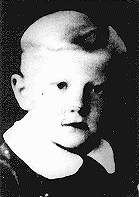
-
Freya Karoline Lang
ID CardAn only child, Freya was born to Jewish parents who lived in a small German town in the Rhine River valley. The Langs owned a successful dry goods business. At this time ready-made clothes were still rare in the countryside. Townspeople and local farmers would purchase fabric at the Lang's store and then take it to their tailor or seamstress to be sewn into a garment. 1933-39: When Freya was growing up, the Nazi party was in power. Many Jews left Germany--Grandmother Lang and one of Freya's uncles sailed…
